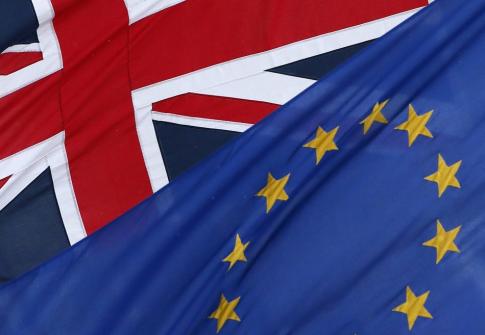Brexit

The pressure is now back on the PM to get her deal through parliament at the third attempt...
MPs have voted for Brexit to be delayed beyond 29 March, the date originally scheduled for the UK's departure from the EU - so what happens now?
:: Monday 18 March - Prime Minister Theresa May is expected to make a statement in the House of Commons on what she plans to do next.
:: Tuesday 19 March - This could very well be the date of a third "meaningful" vote on the prime minister's Brexit deal.
It has already been overwhelmingly rejected twice by MPs, but could Tory Brexiteers and the DUP finally be persuaded to get behind the withdrawal agreement?
The government might need to offer updated legal advice in order to convince both to drop their hostility to the Irish border backstop, while the looming prospect of a long delay to Brexit could also make them reverse their opposition.
However, it has been suggested Mrs May might not be able to bring back her deal - if it's not significantly different - for a third vote under parliamentary convention.
:: Wednesday 20 March - This is the deadline MPs have been given to agree a Brexit deal in order for the prime minister to seek a delay to Brexit until 30 June.
If they don't approve a withdrawal agreement by this date, Mrs May has said it is "highly likely" the EU will need a "clear purpose" for any extension to the Article 50 negotiating period.
Therefore, she argues, the length of any delay to Brexit would be in their hands, would likely be longer than three months, and would require the UK to hold European Parliament elections in May.
:: Thursday 21 and Friday 22 March - Mrs May will head to a European Council summit.
Ideally for her, the prime minister will travel to Brussels fresh from MPs having finally approved her Brexit deal.
She will then be able to ask EU leaders for the short extension to Article 50 to 30 June, to allow her government the time to put her withdrawal agreement into UK law.
The pressure is now back on the PM to get her deal through parliament at the third attempt
However, if MPs continue to reject her deal, Mrs May - if she is still in power - will face the prospect of having to ask for an extension to avoid an imminent no-deal Brexit.
It has been suggested, in this scenario, EU leaders might only agree to a much longer delay to Brexit, while requesting a clear plan from the prime minister of how she hopes to break the impasse at Westminster.
Some have even said EU member states could try and put conditions - or extract concessions from the UK - in return for any extension to Article 50 in such a situation.
:: 29 March - The original date of the UK's scheduled departure from the EU, which Mrs May repeatedly promised she would stick to.
Now, it will - probably - be just another normal day in the political calendar.
:: 23-26 May - The date of European Parliament elections across the EU.
Mrs May has said that if the UK extends Article 50 beyond 30 June, the UK will also have to elect MEPs.
Former UKIP leader Nigel Farage has suggested he could stand as a candidate for the new Brexit Party in possible European Parliament elections.
:: 30 June - This could be the new date of the UK's official exit from the EU, if MPs back a Brexit deal this month and a short three-month extension to Article 50 is agreed to.
:: 31 December 2020 - The end of the proposed Brexit transition period, at which point it is hoped the UK will move into a yet-to-be-negotiated new trading relationship with the EU.




 del.icio.us
del.icio.us Digg
Digg

Post your comment